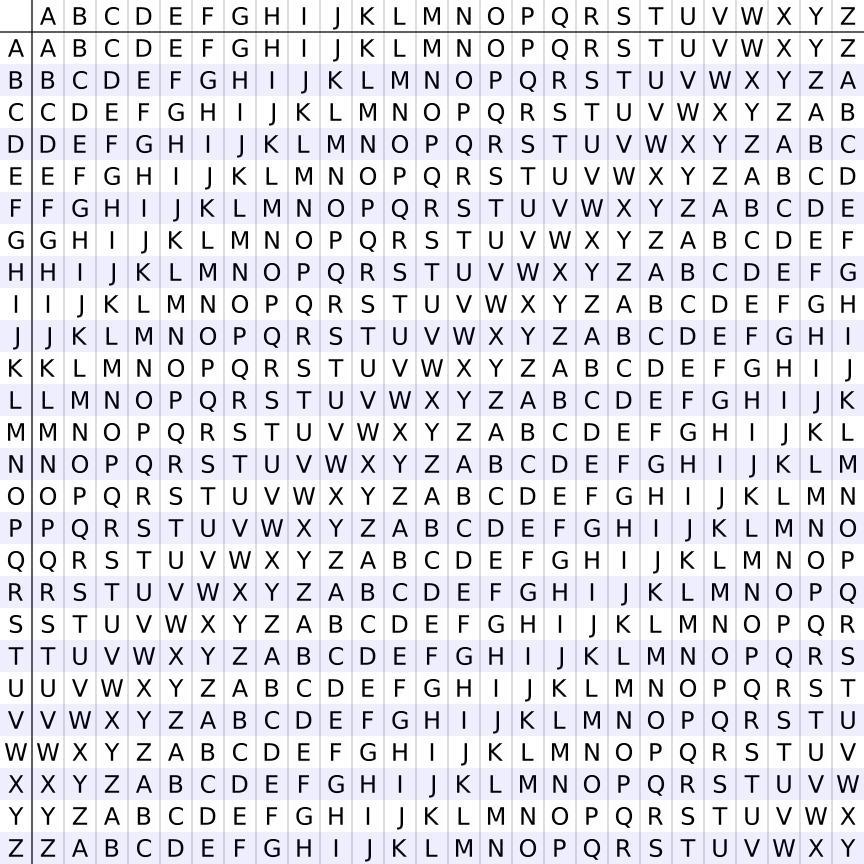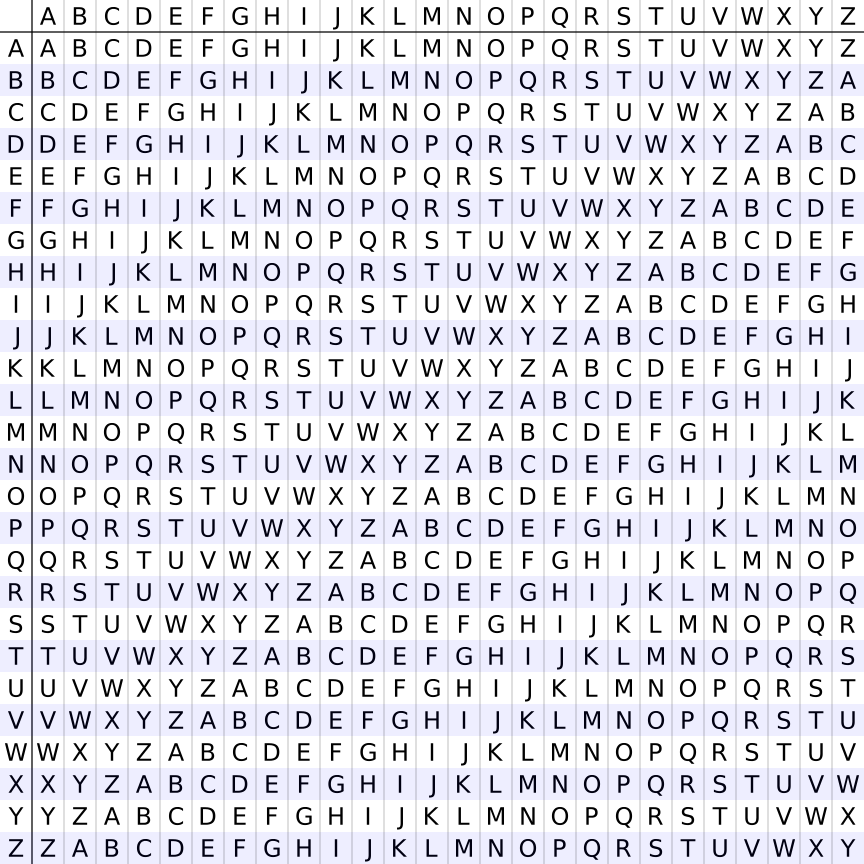
The Vigenère cipher is a polyalphabetic substitution cipher that was developed in the 16th century by a French cryptographer named Blaise de Vigenère.
Blaise de Vigenère enhanced the earlier Alberti cipher, invented by Leon Battista Alberti in the 15th century. The Alberti cipher used a single mixed alphabet and a “Cipher Disk” device for encryption and decryption.
Vigenère’s improvement introduced the use of a repeating keyword or phrase to determine shifts, making it a more secure polyalphabetic cipher compared to monoalphabetic ciphers like the Caesar cipher.
Which of the following is a key component of the Vigenere Cipher?
What makes the Vigenere Cipher different from the Caesar Cipher?
How does the Vigenere Cipher work?
What is the key used in the Vigenere Cipher?
Keyword: S E C R E T S E C R E T
Message: H E L L O W O R L D
Encrypted: Z I N C S P G V J U

Decrypting is exactly the same method as encrypting, except in reverse.
Example:
Keyword: MORSE
Encrypted: IVR LLM GXG HIF RMK TH
Decrypted: WHAT HAS GOD WRAUGHT

The Vigenère cipher uses multiple cipher alphabets, making it more secure than simple substitution ciphers. Each letter in the plaintext can have multiple corresponding ciphertext letters, adding complexity to the encryption.
The Vigenère cipher relies on a keyword or phrase as the encryption key. This key can be easily changed for different messages, providing flexibility in encryption. The key length and complexity can enhance the security of the cipher.
Unlike monoalphabetic ciphers, such as the Caesar cipher, the Vigenère cipher does not preserve the frequency distribution of letters in the plaintext. This makes it more resistant to frequency analysis, a common method of breaking simple substitution ciphers.
The Vigenère cipher is susceptible to the Kasiski examination, which is a technique used to analyze repeated patterns in the ciphertext. Repeated sequences can reveal information about the keyword length and eventually lead to decryption.
The security of the Vigenère cipher depends on the length and randomness of the keyword. If the keyword is short or easily guessable, the cipher becomes weaker. Long and random keywords are harder to remember and manage.
If an attacker knows or can guess parts of the plaintext and the corresponding ciphertext, they can deduce information about the keyword. This knowledge can aid in breaking the cipher.
How does the Vigenere Cipher differ from the Caesar Cipher?